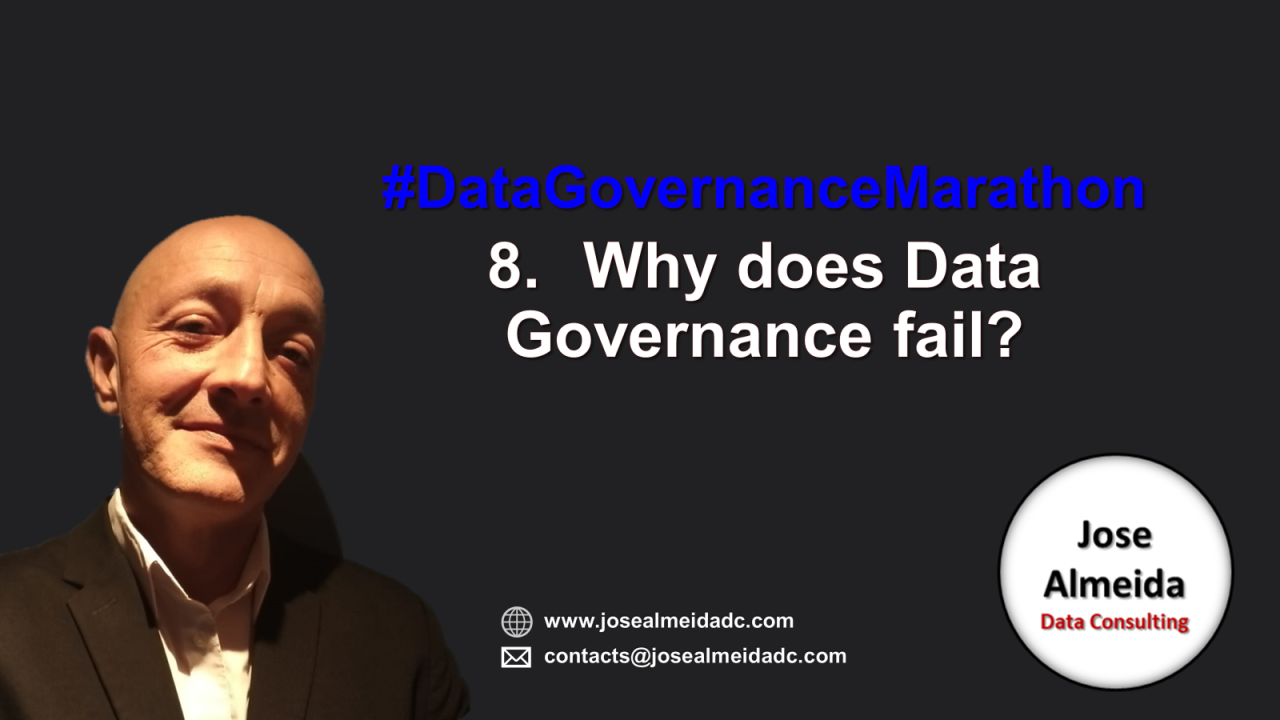Data governance is widely recognized as a fundamental pillar of successful data management strategies. However, despite its importance, many organizations struggle to achieve effective data governance, leading to various challenges and failures along the way. Understanding the root causes of these failures is essential for implementing robust data governance initiatives that drive positive outcomes. Here are some common reasons why data governance initiatives fail:
- Lack of executive support: One of the primary reasons for data governance failure is the absence of strong executive sponsorship. Without visible support from senior leadership, data governance initiatives often lack the necessary resources, authority, and direction to succeed. Executive leaders must champion the importance of data governance and allocate the required budget, personnel, and organizational buy-in to drive its implementation.
- Undefined goals and objectives: Another common pitfall is embarking on a data governance journey without clear goals and objectives. When organizations fail to define specific outcomes and metrics for success, it becomes challenging to measure progress and demonstrate the value of data governance efforts. Establishing clear goals, such as improving data quality, enhancing regulatory compliance, or optimizing decision-making processes, is essential for driving alignment and accountability.
- Siloed approaches: Data governance initiatives often falter when they are implemented in isolation or within departmental silos. Effective data governance requires cross-functional collaboration and alignment across the entire organization. Siloed approaches lead to fragmented governance efforts, inconsistent data practices, and conflicting priorities, ultimately hindering the success of data governance initiatives.
- Resistance to change: Resistance to change is a common barrier to successful data governance implementation. Employees may resist new governance processes, tools, or responsibilities due to fear of job displacement, perceived loss of control, or unfamiliarity with new data practices. Overcoming resistance to change requires effective communication, training, and change management strategies to ensure that stakeholders understand the benefits of data governance and are empowered to embrace new ways of working.
- Inadequate resources and expertise: Insufficient resources, including budget, staff, and expertise, can impede the effectiveness of data governance initiatives. Building and maintaining a robust data governance program requires a dedicated team with the right skills and capabilities to design, implement, and sustain governance processes. Organizations must invest in training, hiring, and retaining qualified professionals to support their data governance efforts effectively.
- Lack of data governance framework: Data governance initiatives may fail if organizations lack a clear and comprehensive framework for governing their data assets. A well-defined data governance framework establishes the guiding principles, policies, procedures, and roles necessary to manage data effectively across the organization. Without a solid framework in place, data governance efforts are prone to inconsistency, ambiguity, and inefficiency.
Addressing these common challenges and pitfalls is essential for building resilient and sustainable data governance programs. By securing executive support, defining clear goals, fostering collaboration, addressing resistance to change, allocating adequate resources, and implementing a robust governance framework, organizations can overcome barriers to success and realize the full benefits of data governance.

Chief Marketing Officer ★ Transformative Marketing Leader ★ Innovative Growth Hacker ★ Data-Driven Market Disruptor ★ Published Public Speaker ★ Marketing Mentor & Coach
9 个月What a marathon of data governance questions! How can we prevent these failures?
Founder of Conquer Sales, the fastest growing international sales community in the Baltics | Sales Coach | Sales Advisory | Hubspot
9 个月Curious journey ahead! What if data governance parallels the fate of mighty Achilles? Jose Almeida
Jose Almeida Thanks for Sharing ??